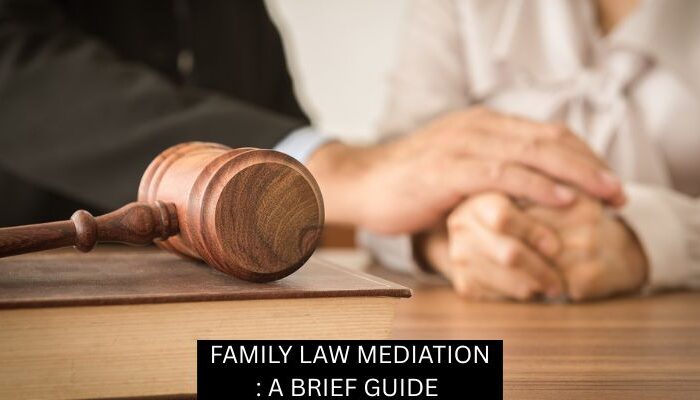
Divorces can be tough on couples as well as on the children of the marriage. The psychological and financial trauma it brings to one’s life can take a significant period to heal.
Oftentimes, the children choose to stay with their grandparents in cases of divorce or separation between their parents. This raises the question that whether grandparents are entitled to acquire parenting responsibility for their grandchildren.
This blog article discusses grandparents’ rights to parenting-time and the decision-making responsibility of the grandchildren and how they can apply for parenting and contact order for their grandchild/children.
What Does The Law Say About Grandparents’ Right To Parenting And Contact With The Grandchild?
As per the law, the parents of a child have constitutionally protected right to the child’s decision-making responsibility and parenting-time. However, there are certain provisions found in the Children’s Law Reform Act, R.S.O. 1990, c. C.12 (CLRA) and the federal Divorce Act, RSC, 1985, c. 3 (2nd Supp.) dealing with grandparents’ rights to have parenting-time or contact with their grandchildren.
How To Apply For Parenting Or Contact Order As A Grandparent Under The CLRA?
Under section 21(2) of the CLRA, it is stipulated that any person apart from the parent of the children, as well as the grandparent, may apply for a parenting order seeking decision-making responsibility for a child.
Section 21(3) of the CLRA allows them to apply for a contact order if they wish to maintain a relationship with the child. Both the applications i.e. under section21(2) and 21(3) must be accompanied by a mandatory affidavit outlining the reasons stipulated in Section 21(4) of the CLRA.
The affidavit must outline the following as per the CLRA:
- The applicant’s proposed plan for child’s upbringing
- Any current or previous involvement in any family proceedings
- Any other information relevant to the child’s best interests
Note: It is pertinent to mention that grandparents or non-parents do not have an automatic right to parenting or contact with the child. The courts consider applications on a case-by-case basis. The applicant needs to demonstrate compelling reasons such as, absence on unwillingness of parental care, neglect of parental duties, etc.
Best Interests Of The Child Test
It is pertinent to note that while deciding parental and contact orders, the test of “best interests of the child” always comes into the picture. The welfare of the child test is predominantly appropriate in the claims between the partners as well as between the parent and non-parent. Section 24 of the CLRA sheds light on the best interests of the child, where the primary consideration is given to the child’s emotional and physical safety, security, and well-being.
Section 16.1(b) of the Divorce Act allows a person, besides the spouse, who is the parent of the child, acts in place of or wishes to act in place of the parent to obtain a parenting order from the court. Correspondingly, section 16.5 of the Act permits a person besides the spouse, including the grandparent, to obtain a contact order. A grandparent filing for a contact order under the Divorce Act is required to acquire leave of court to proceed with that application.
How Are The Grandparents’ Parenting, Access, And Contact Cases Dealt With?
Chapman v. Chapman (2001), O.J. No. 705 (Ont. C.A.)., is one of the leading cases that helped evolve jurisprudence on the entitlement of grandparents’ access cases. The Ontario Court of Appeal ruled that whenever there is an absence of evidence regarding the parent’s inability to uphold the best interests of the child, then in such an instance the parent’s right to access cannot be subsided.
- The exclusive legal right of parents to decide
The Chapman case made it known that the right to the extent and nature of the grandmother’s contact with her grandchildren is to be kept in line with the decision children’s parents when the parents are assiduously taking care of the best interests of the children. By its very nature, it proved that the children’s parents (competent parents) have the exclusive authority to decide their children’s access, not the judges or grandparents.
- The Closeness of the Bond
Furthermore, the closeness of the relationship between a grandparent and grandchild is one of the preliminary elements in the grandparent’s application to access. For a successful parenting and contact application, there needs to be a connection between the child and the grandparent that is parallel to the parental one in terms of care, protection, and support.
- Child’s Preferences and wishes
In a similar vein, the views and preferences of the child are also significant while granting access to the children to the grandparents. In Meloche v. Frank [1991] O.J. No. 1114 (O.C.J. Prov. Div.) (QL), the court made it abundantly clear that access is primarily the right of the grandchild and not of the grandparent. The primary focus of inquiry should be the child and not the applicant of access, whether it’s a parent or grandparent, or any other person.
We Look Forward To Meeting With You!
We always recommend engaging the services of a family lawyer to strengthen the advocacy of your case. At Ayaz Mehdi Professional Corporation, our experienced family lawyers can help mitigate the stress related to parenting time and parental decision-making in your separation/divorce.
Disclaimer: Kindly note that sending or receiving information through this site does not establish a solicitor-client relationship. Legal matters are fact-specific, and the law is variably changing. The views expressed and the content provided on this blog are general guidelines and cannot substitute for proper legal advice. Schedule your legal consultation by clicking here: Let’s meet!






